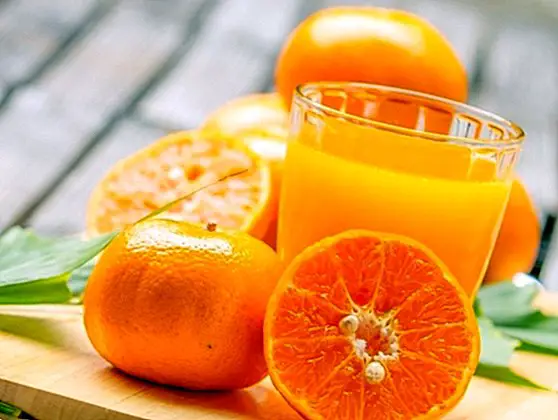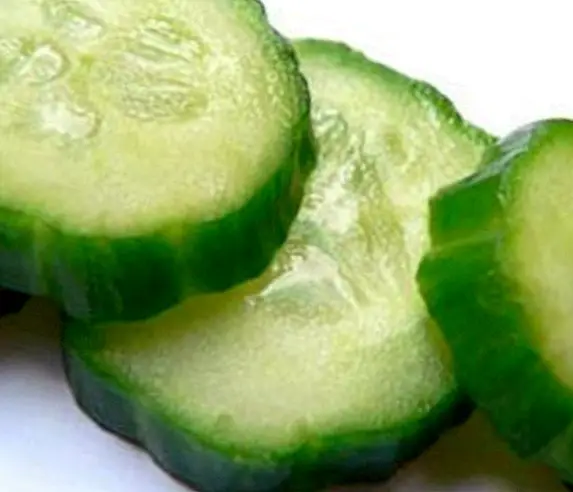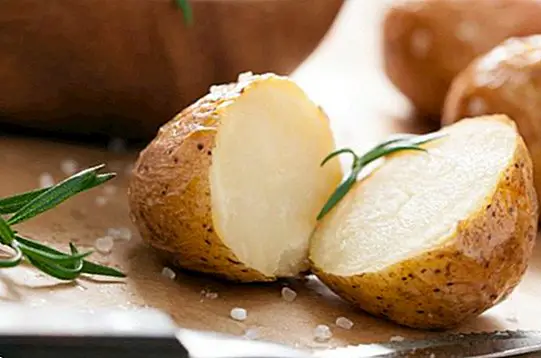Why it is better to eat whole oranges instead of juice
Each morning he always performs the same ritual: he takes from the fruit bowl two or three fresh oranges, part in half, and squeezes them in the citrus juicer in order to get all his juice. Then, remove the pulp and whitish skin that has been left in the juicer with care, strain it, and serve in a large glass its orange juice. In the trash throws the peel, that white skin and the pulp of the orange.
It is, almost in all probability, a habit that takes place every morning in a wide variety of homes in our country, especially and especially during the winter months, when the orange he is precisely at his best time. In fact, for a good number of people it is common for orange juice to become part of their breakfast, accompanied by a cup of coffee.

Be that as it may, there is no doubt that its consumption also increases at this time of year because -in theory- it helps to increase our defenses and is useful in the prevention of colds and flu.
While it is true, as we have mentioned on occasion, that oranges do not help to avoid or cure the common cold or flu, they do help to strengthen our immune system thanks to its high content of vitamin C and potassium, so that its consumption is advised to reduce the risk of getting sick due to these common conditions during this time of year.
However, Increasingly, the number of nutritionists who are against fruit juices, especially the packaged ones, those that we usually find in the supermarket. In other words: defend the consumption of whole fruits well above their consumption in the form of juices or fruits.
The reasons are quite diverse (which we will go on to shear throughout this note), but there is one extremely important and that we should never underestimate: the nutritional properties that a whole orange gives us are not the same as what it gives us in juice, just as the amount of food we consume will not be identical.
What are the main differences between the whole orange and in the form of juice
We eat more food in the form of juice than whole
It is evident that the amount we eat when taking whole fruit naturally or in juice is not the same, because to prepare a glass of juice we will need at least 2 pieces of fruit (and sometimes it is possible that we fall short).
In the particular case of orange juice, we must bear in mind that a medium orange weighs around 200 grams, of which 50 are part of the shell. That is, of those 200 grams actually edible are only 150 grams. However, to obtain a glass of juice of 250 milliliters we will need at least 2 oranges and a half.
Therefore, by taking the fruit in the form of juice we will be eating more food, but especially in the form of sugars and with a smaller amount of fiber than if we consumed them whole.

Less fiber and therefore less satiating power
Most of the fiber that we find in a piece of fruit is located mainly in its skin and in its pulp. In the particular case of orange, we also find part of this fiber in the thin white skin between the skin and the pulp. However, when we prepare it in the form of juice it is evident that the pulp and most of that white skin is removed, and not consumed.
So, orange juice loses most of the fiber that gives us the whole orange. In fact, if a fresh and natural orange gives us around 2.4 grams of fiber per 100 grams, when we take it as juice, it gives us only 0.1 grams. And if, in addition, we tend to strain the orange juice the result is even worse: it will practically have no fiber, being eliminated completely.
This means not only that we will practically not consume fiber, but that the satiating power of orange juice is much less than if we consumed it whole. Therefore, it will not help us sate or delay our appetite, so we will end up eating more food.
Greater absorption of sugars
Some time ago the World Health Organization (WHO) advised to take the whole fruit and naturally, reducing the consumption of fruit juices, especially among children.
The reason is quite simple: the fiber that we find in a piece of whole fruit helps the sugars present in it to be absorbed more slowly. However, when we opt for a glass of fruit juice, its sugars end up absorbing faster.

The effects are also quite evident, since the juice will have a lower satiating power, and in addition, will cause an abrupt increase in blood glucose levels. Thus fruit juices, packaged or natural, are closely related to the increase of overweight and obesity that our population is suffering today.
Taking everything indicated, the conclusion is more than obvious: discard our orange juice breakfast and replace it with the consumption of whole oranges. They are equally delicious, more nutritious and above all much healthier. This article is published for informational purposes only. You can not and should not replace the consultation with a Nutritionist. We advise you to consult your trusted Nutritionist.


